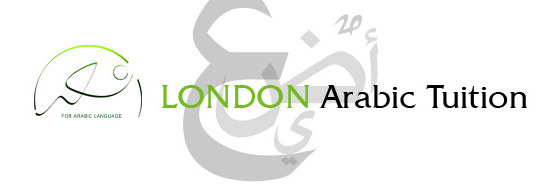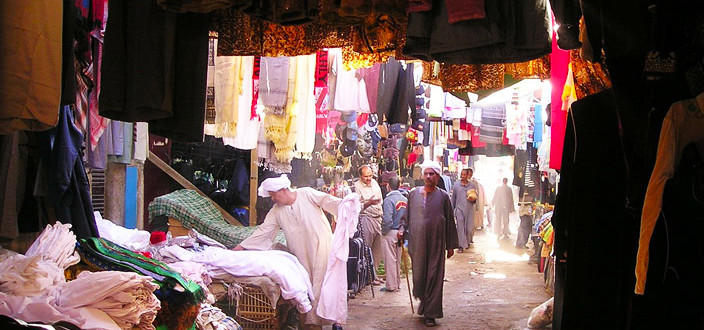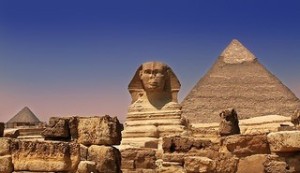The Lifestyle in Egypt
Egypt is located in Northern Africa. It is nestled between Libya and the Gaza Strip, and the Red Sea north of Sudan. Its territory includes the Asian Sinai Peninsula. Its desert climate means the country experiences hot, dry summers and moderate winters.
History of Egypt
This country was founded more than 6,000 years ago and has a rich and mysterious history that includes invasion, vast building projects, and medical and scientific discoveries made over nine major periods (divided into more than 20 dynasties).
Egypt became a republic in June of 1953, having been a British protectorate since 1914. The following year, British forces withdrew. Egypt was involved in the Six-Day War in June of 1967 against Israel. It also went to war against Israel in October 1973 in during Israel’s celebration of Yom Kippur. The conflict was dubbed the “Yom Kippur War.”
Egypt’s People
Arabic is the official language of Egypt. English and French are also understood by many in the educated classes. Getting proficient at Arabic will help you to get by but also to endear you to the locals.
Working in Egypt
There are approximately 30,000 European and North American expatriates living in Egypt. Most of them are living in the capital city of Cairo, although some settle in Alexandria, Luxor or in one of the resorts located near the Mediterranean or Red Seas.
Once a secure job offer has been extended to work in Egypt, a work permit is required. In most cases, the employer will look after obtaining it. Travellers can enter the country on a tourist visa, apply for temporary residency and a work visa after arrival, then look for work. To find out about up to date requirements, contact the Egyptian embassy.
Religious Beliefs
Approximately 90 percent of Egyptians are Muslim (predominately Sunni), and the remaining 10 percent of the population are Christian. The majority of Christians in Egypt are members of the Coptic Orthodox faith. The Armenian Apostolic, Catholic, Anglican, Orthodox and Maronite denominations are also represented.
Egyptian Cuisine
Egyptian food is simple and tasty, relying mainly on the plentiful vegetables and herbs grown in the Nile Valley. It also includes lamb, chicken and seafood. Visitors to the country can expect to be served generous portions and to find foods that will appeal to vegetarians, vegans and those who enjoy meat, too.
Ful Medammes is usually eaten at breakfast and is one of the country’s favourite and most popular quick meals. It is made with slow-cooked lava beans which are seasoned with salt, garlic, chopped parsley, olive oil, lemon, cumin and black pepper. It is sold in small shops and in restaurants, and is usually served with bread.
Aish Baladi is Egyptian bread and is an important part of every meal. This version is made with a mixture of white and whole wheat flour before being baked near an open flame. The result resembles a pita. Aish Baladi can be bought from street vendors and in supermarkets.
Karkadeh is made by boiling dried red hibiscus flowers and chilling the water. Sugar is added to make the drink a cross between sweet and sour. It can also be served hot as an herbal tea.
Hamam mahshi,or stuffed pigeon, is one of the country’s most loved dishes. The fowl is stuffed with rice or green wheat called fereek before being roasted. The meat is darker than chicken and is full of flavour.
Umm Ali is made with layers of bread soaked in milk and raisins (and sometimes nuts). This sweet treat is baked in the oven until its surface is golden brown. The result is a creamy cake that is enjoyed throughout Egypt and the Middle East. It is prepared at home and served in most local restaurants.
Egypt’s Economy
The Nile River Valley bisects the country, and this is the place where most economic activity takes place. The economy opened up a great deal under the direction of former Presidents Anwar El-Sadat and Mohammed Hosni Mubarak. The country’s main exports are natural gas and products, including cotton textiles, petrochemical products, ready-made clothing, citrus fruits, rice, dried onions, ceramics, cement and steel.
Traveling to Egypt
If you plan to travel to Egypt on vacation or to work, do respect religious and social traditions to avoid offending the local population. Dress modestly and conduct yourself with discretion in all situations.
Although many people in Egypt speak English, learning Arabic before you arrive will help you to understand its people and reduce the risk that you will inadvertently offend someone during your stay. Most Egyptians are friendly and happy to help out visitors; they will no doubt appreciate your effort to speak Arabic in their country.
To prepare yourself for your trip to Egypt, whether you are planning a holiday or wish to work there for a time, you’ll want to receive a quality course of education that will focus on your specific goals. London Arabic Tuition can provide that type of language training. Contact us today to learn more about how we can help you.






When I originally commented I clicked the “Notify me when new comments are added” checkbox and now
each time a comment is added I get three e-mails with
the same comment. Is there any way you can remove me from that service?
Many thanks!